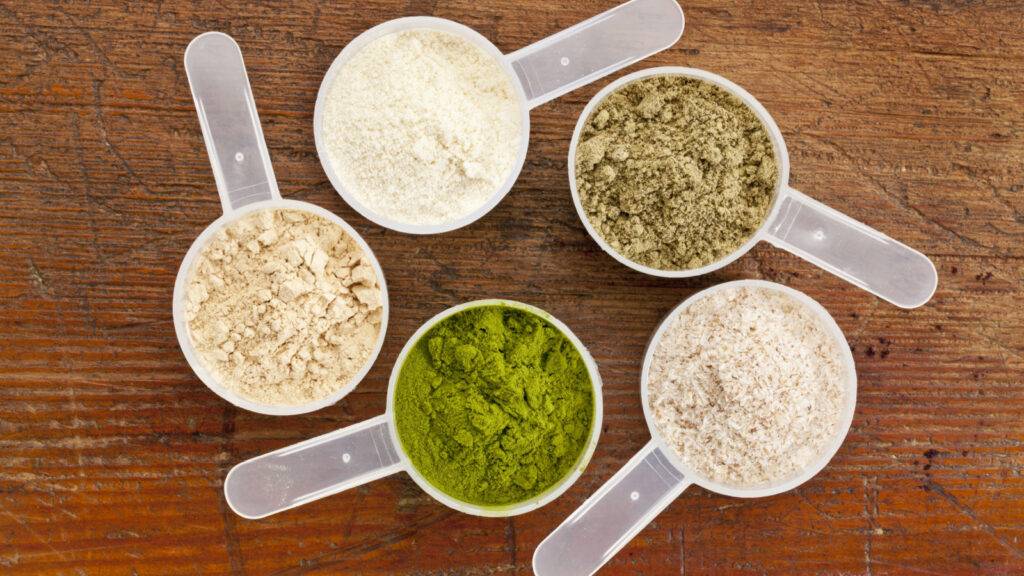I’ve seen more people worrying about protein powder and its effects on kidney health. As someone into fitness and nutrition, I decided to look into it. The question “Is protein powder bad for your kidneys?” has become increasingly common, making it essential to understand the relationship between protein intake and kidney function. Protein and kidney health are closely related, so it’s key to know how they work together.
Whey protein is a favorite among those in fitness, coming in various forms. Whey protein concentrate has 25-89% protein, while whey protein isolate has at least 90%. These high protein levels make me wonder about their effect on kidney health.

Recent studies found that eating 2.5 to 3.3 grams of protein per kilogram of body weight for a year didn’t hurt kidney function in men. This shows that healthy people might not have to worry about moderate protein powder use.
But, eating a lot of protein can increase urine calcium levels, which might lead to kidney stones. For people with kidney problems, the effect of protein powder on kidney function could be bigger.
Understanding Protein Powder and Its Types
Protein powder is a dietary supplement that boosts your protein intake. It comes in many forms, each with its own benefits. Let’s dive into the world of protein powders and their nutritional perks.
What is protein powder?
Protein powder is a concentrated protein source from animals or plants. Mix it with water or milk for a quick protein shake. Athletes, bodybuilders, and health enthusiasts use it to help with muscle growth and recovery.
Common types of protein powder
There are many types of protein powder out there:
- Whey protein: Fast-absorbing and rich in essential amino acids
- Casein protein: Slow-digesting, ideal for sustained protein release
- Soy protein: Plant-based and complete protein source
- Pea protein: Easily digestible and allergen-friendly
- Hemp protein: Rich in omega-3 fatty acids
- Brown rice protein: Often used in plant-based protein blends

Also Read:
1. THE 5 BEST TYPES OF PROTEIN POWDER EXPLAINED IN 2024
2. A COMPREHENSIVE GUIDE TO WHEY PROTEIN
Nutritional benefits of protein powder
Protein powders have many nutritional benefits:
| Benefit | Description |
|---|---|
| Muscle growth | Supports muscle protein synthesis |
| Recovery | Aids in post-workout muscle repair |
| Weight management | Promotes satiety and helps maintain lean muscle mass |
| Convenience | Provides a quick and easy protein source |
The amount of protein you need varies. For example, recreational athletes need 1.1 to 1.4 grams per kilogram of body weight. Competitive athletes might need up to 2.0 grams per kilogram. It’s key to pick a protein powder that fits your diet and fitness goals.
How Your Kidneys Function
Your kidneys are key to your health. They filter your blood and remove toxins. Let’s dive into how they work and why they’re vital.
The role of kidneys in the body
Kidneys filter your blood to clean it of waste and extra fluid. They process about 200 quarts of blood every day, making 1-2 quarts of urine. This keeps your body balanced with the right levels of electrolytes and minerals.

How kidneys process protein
Your kidneys are also in charge of protein metabolism. They break down protein into smaller pieces. Then, they remove waste like urea and ammonia. The liver turns ammonia into urea, making it safer for the kidneys to get rid of.
Normal kidney function vs. impaired kidney function
Healthy kidneys filter blood well, as shown by a high glomerular filtration rate (GFR). A normal GFR is between 90 and 120 mL/min/1.73 m2. If your kidneys don’t work well, waste can build up in your blood.
Did you know? Plant-based proteins are gentler on your kidneys than animal proteins. They make less acid in your body. This can help reduce stress on your kidneys. If you have kidney issues, watch how much protein you eat.
Can High Protein Powder Harm Your Kidneys?
Many fitness lovers use protein powder as a key supplement. I’ve often thought about how it affects kidney health. For healthy people, moderate use of protein powder doesn’t really harm the kidneys.
Studies show that eating a lot of protein doesn’t hurt the kidneys in healthy adults. A big study looked at 28 other studies. It found no harm from eating up to 1.5g of protein per kilogram of body weight each day. This proves that eating a lot of protein doesn’t lead to kidney damage in healthy folks.
But, some things can make the risks higher:
- People with chronic kidney disease should watch their protein intake.
- Eating too much protein can make urine more calcium-rich, which might increase kidney stone risk.
- Whey protein, being high in animal protein but low in calcium, could lead to more kidney stones if eaten too much.
- Balance protein with foods high in calcium.
- Drink plenty of water to help remove extra minerals.
- Think about using plant-based protein powders, which might be easier on the kidneys.
| Protein Source | Kidney Stone Risk | Recommended for CKD |
|---|---|---|
| Whey Protein | Higher | No |
| Plant-based Protein | Lower | Yes |
| Mixed Sources | Moderate | Consult Doctor |
Protein powder isn’t automatically bad for your kidneys. But, it’s important to use it carefully. Talking to a health expert can help figure out the right amount for you. This is especially true if you have kidney issues or are at risk for kidney stones.
Protein Intake and Kidney Health in Healthy Individuals
Protein is key in our diet, but its effect on kidney health is debated. I looked into recent studies to explain this topic better.
Research on High Protein Diets and Kidney Function
High-protein diets can change how well our kidneys work. A study in the Netherlands found that eating more protein sped up kidney decline in older people. Another study in South Korea showed that eating a lot of protein raised the risk of kidney hyperfiltration by 3.5 times.
Recommended Protein Intake for Healthy Adults
The RDA for protein is 0.8 g/kg/day. This means 10-15% of our daily energy should come from protein. Most people in the West eat 1.0-1.4 g/kg/day, which is more than needed.
Potential Risks of Excessive Protein Consumption
Eating too much protein can be harmful. A study found that eating a lot of low-carb, high-protein foods raised the risk of chronic kidney disease by 48%. Red and processed meats were linked to more kidney disease risk. But, nuts, low-fat dairy, and legumes seemed to protect against it. High-protein diets might also cause nutrient shortages if carbs are cut too much.
It’s important to balance protein with other nutrients for good kidney health. If you’re thinking about a high-protein diet, talk to a healthcare provider, especially if you have health issues.
Protein Powder and Kidney Health in At-Risk Populations
For people with chronic kidney disease (CKD) or hypertension, thinking about protein powder is important. High-protein diets can help some, but those with kidney problems need to be careful.
CKD patients often need to eat less protein. Their kidneys can’t handle a lot of protein, which can make the disease worse. They usually eat about 0.6 to 0.7 grams of protein for every kilogram of their weight. This is less than the usual advice of 0.8 grams.
About 30% of CKD cases in the U.S. are caused by high blood pressure. For these people, keeping their blood pressure under control is key. Some studies say high-protein diets might help lower blood pressure. But, people with kidney problems should talk to doctors before eating more protein.
| Population | Protein Intake (g/kg body weight) | Considerations |
|---|---|---|
| Healthy Adults | 0.8 – 2.0 | Generally safe, may aid weight loss |
| CKD Patients | 0.6 – 0.7 | Protein restriction to slow disease progression |
| Hypertensive Individuals | Varies | Consult healthcare provider, monitor blood pressure |
These guidelines are for people at risk. Healthy folks usually don’t need to worry about eating so little protein. Always talk to a doctor before changing your diet, especially if you have kidney or blood pressure issues.
Conclusion
I’ve looked into how protein powder affects kidney health, and the news is good for most people. Studies show that protein powder is safe for those with normal kidney function. It can even help by increasing muscle mass and improving blood pressure when used with exercise.
For healthy adults, adding protein powder to a balanced diet doesn’t harm the kidneys. But, it’s important to think about your own health first. If you have kidney issues or are at risk, talk to a doctor before taking more protein.
Older adults might not need as much protein powder to see benefits. While protein powders are generally safe for kidney health, we need more research over time. The main point is to eat well, drink plenty of water, and think about your health when using protein supplements. Being careful and making smart choices helps keep your overall health, including your kidneys, in good shape.
Further Navigation
- Click / Tap here to explore more insights about protein powders.
- Click / Tap here to get expert guidance on BCAAs and aminos.
- Check out our trending articles on creatines. (Click / Tap on the text)
- Our pre-workout articles are a game changer. Click or tap on the text to find out more.
- Return to the homepage.
